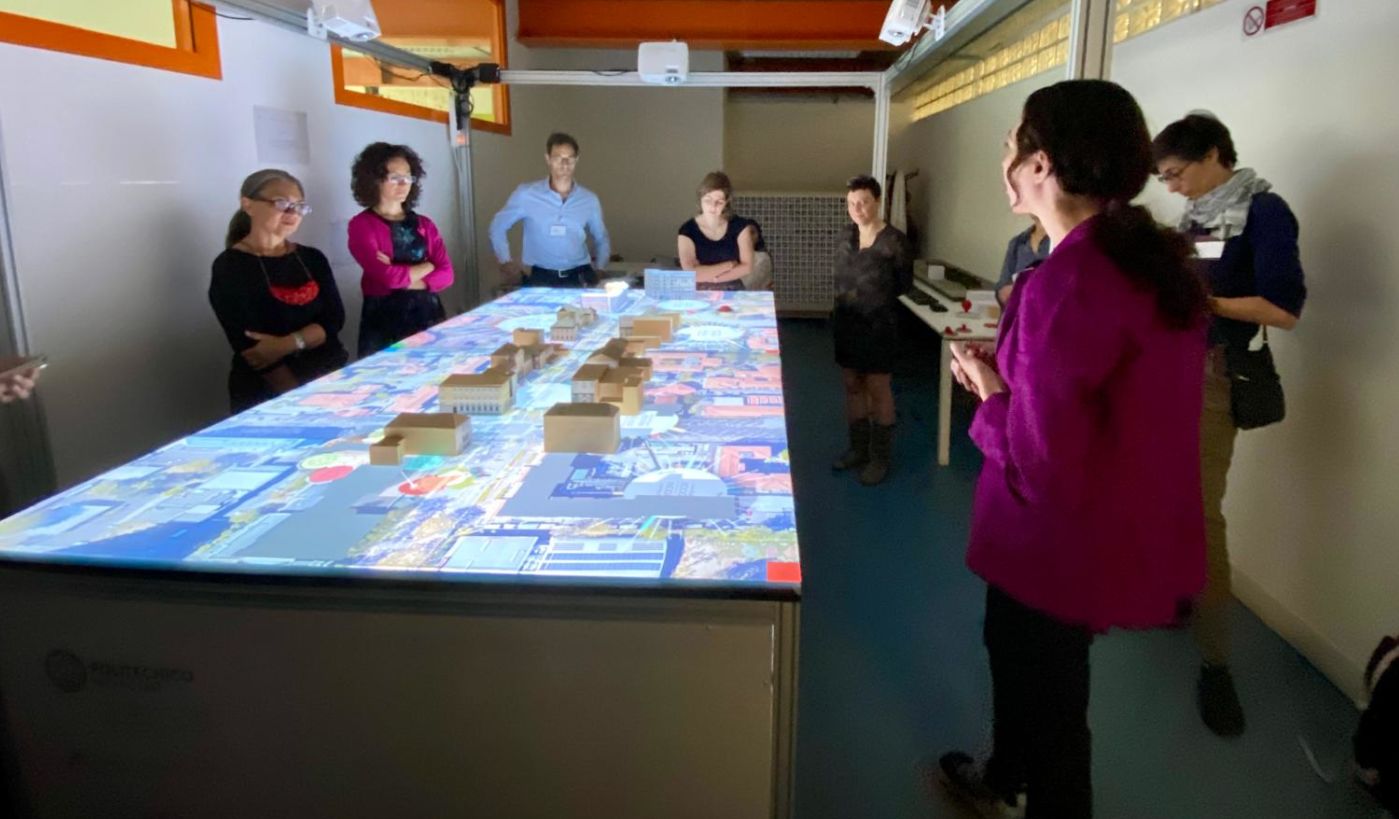Presented the Tavolo Luminoso, a project in synergy between Milanese universities for innovation in urban planning
Milan is the stage for an event of crucial importance for the future of interdisciplinary urban planning. On 4 June, the Luminous Planning Table (LPT), a key component of the exp-EIA ecosystem, was presented. Organised as part of the MUSA project, the event brought together institutional and private stakeholders to explore the potential of this innovative ‘phygital’ platform.
During the event, teams from the Politecnico di Milano and the University of Milan illustrated the progress of their research and technological developments, highlighting the functionalities of the LPT and Exp-EIA-related equipment. This innovative methodology integrates an augmented and virtual reality app and a web-platform for participatory urban planning. Key features of the Light Table include real-time shadowcasting, façade projection, and representation of environmental and psychological data, such as cognitive preferences and regeneration potential.
A unique aspect of the LPT is its ability to connect to a mobile app, which enables visualisation of future urban transformations and current landscapes in relation to their psychological qualities. This integration provides a comprehensive and dynamic view of the urban environment, enhancing the understanding and planning of urban spaces.
One of the strengths of the event was the collaboration between three of Milan’s leading universities: the Politecnico di Milano, the University of Milano-Bicocca, and the University of Milan. This synergy highlighted the importance of interdisciplinarity in urban design, where the combination of different skills and perspectives can generate innovative and sustainable solutions.
After the presentation at the Politecnico, participants moved to the University of Milan for further demonstrations related to the State University group’s research on individual and affective perception of the environment. The final session of the morning featured a panel discussion moderated by the popular science duo ‘Not the Zebra’. This discussion allowed participants to reflect and discuss the tools and technologies presented.
MUSA continues to represent a virtuous example of how interdisciplinary collaboration and technological innovation can be at the service of urban sustainability, placing Milan at the forefront of the international research and urban design scene. The event demonstrated how similar initiatives can, in the long run, promote efficient ecological transition and sustainable urban regeneration. Through educational and awareness-raising activities, such as the final round table, MUSA aims to create an informed public capable of looking at reality through an alternative gaze, thus contributing to a more sustainable and conscious urban future.





